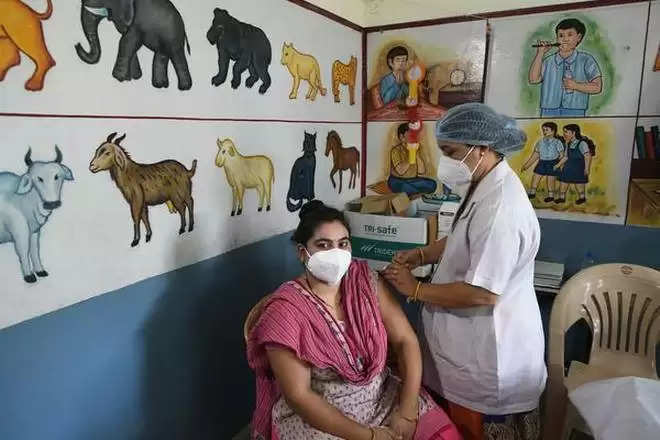COVID-19: Experts warn that unless we vaccinate promptly, public health may be jeopardized.

They claim that herd immunity will not be achieved until 60 percent of the population is immunized.
If we do not vaccinate as soon as possible, public health and, by extension, economic prosperity may be jeopardized. According to physicians, the sooner more individuals get vaccinated, the better for society and the country. They are particularly concerned about the slowing down of COVID-19 numbers and the rising possibility of a third wave.
“India’s current immunization rate is far from adequate, despite the fact that in terms of overall vaccines, India has overtaken the United States. India’s current immunization rate falls well short of what is required. This would postpone vaccination, which is now the only feasible means of breaking the chain of transmission and preventing serious illnesses and deaths in affected people,” stated Gauri Agarwal, IVF Expert, and creator of Seeds of Innocence.
She went on to say that in a nation as large and overpopulated as India, this may expedite the start of a third wave.
“India began the world’s largest vaccine program to protect people against COVID-19 earlier this year, but inoculating even 60% of the country’s 130-crore population is a tremendous undertaking,” said Archana Dhawan Bajaj, gynecologist-obstetrician and director of Nurture IVF.
Despite the fact that the central government was pushing the vaccination effort, she continued, the number of individuals who received both doses was low, and some people were even hesitant to receive the first dosage vaccine.
Dr. Archana went on to say that it was well acknowledged that India needed to speed up its universal vaccination campaign, and that herd immunity could not be achieved until 60 percent of the population was vaccinated.
“Moreover, there is a widespread concern throughout the country about the possibility of a third or subsequent wave. Global trends with Delta variants also point to potential threats, so the vaccination campaign must be stepped up right away to ensure that the maximum number of people are vaccinated in order to achieve herd immunity, which will protect the majority of the population from severe disease in the third wave or future waves,” she said.
‘Address vaccination apprehension.’
“The government must use excellent visual communication on television and digital channels to address vaccination apprehension and encourage individuals to follow COVID guidelines at all times. They must also guarantee that pregnant women and nursing moms are able to be vaccinated, and they may organize special camps for pregnant women and lactating mothers in specific areas for ease of access and convenience,” she added.
“While we wait for vaccine permission for children under the age of 18,” Sanjeev Dutta, senior consultant Pediatrics, QRG Health City, Faridabad, explained, “it is anticipated that the adult immunization campaign will result in a lower risk of infection for the youngsters.”
COVID-appropriate behavior (proper use of face mask, social distance, and regular hand sanitization/washing) will be an important part of the third wave’s prevention, he noted. The worldwide preventive approach sought to increase vaccine coverage.
A single immunization strategy for a vast and varied country like India, according to Anju Wali, medical superintendent, PSRI Hospital, is hard and tough to implement.
“Despite this, we have developed a strong policy currently, and with numerous vaccinations on the horizon, vaccines will be readily available, and the only issue that would remain would be vaccination reluctance. More public knowledge encourages this.
.png)